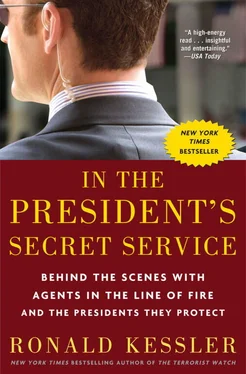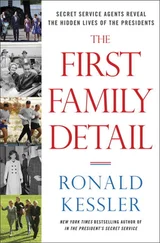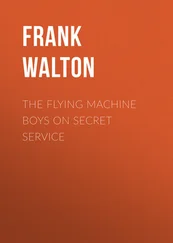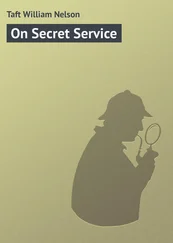“If something happens now, you have an entire medical staff waiting for you when you get to the hospital,” Breen says. “It’s nothing like back in 1972, when Jimmy Taylor and I were confronted with the worst thing that could happen to a Secret Service agent, to have a protectee hurt or killed. This is your job, you’re supposed to protect him, and something like this happens. And it rarely does, but it certainly happens. The agents feel horrible about it, and you live with it a long time.”
While the Secret Service wanted to screen crowds with magnetometers, candidates like Wallace objected, saying such security measures would needlessly irritate people and discourage them from showing up. After the Reagan shooting, the Secret Service began using magnetometers routinely to find hidden weapons. To allow crowds into an event without magnetometer screening became unthinkable. Yet in recent years, under pressure from politicians’ staffs to let crowds into events without screening, the agency has buckled.
Only one such incident has been publicized. The press reported complaints from current or retired law enforcement officials that an hour before a rally for presidential candidate Barack Obama was to start at Reunion Arena in Dallas on February 20, 2008, the Secret Service stopped magnetometer screening.
The Fort Worth Star-Telegram reported that Danny Defenbaugh, a former FBI agent who was inspector in charge of the bureau’s investigation of the 1995 Oklahoma City bombing, questioned why guards would suddenly stop searching for weapons.
“Why were they doing it in the first place?” Defenbaugh asked rhetorically, adding that “of course” screening for weapons should have continued. “Dallas, 1963,” he added. “You know what happened. I don’t think Dallas wants that to happen again.”
“This relaxed security was unbelievably stupid, especially in Dallas,” Jeff Adams of Berkeley, California, said in an email to the paper, noting the assassination of President Kennedy in that same city more than four decades earlier.
Eric Zahren, a spokesman for the Secret Service in Washington, denied that stopping screening posed a problem.
“There were no security lapses at that venue,” Zahren told the Dallas paper. There was “no deviation” from the “comprehensive and layered” plan, implemented in “very close cooperation with our law enforcement partners,” he added.
But agents say such lapses occur periodically and defy common sense. An agent who was on Obama’s presidential candidate detail says it was “not uncommon” to waive magnetometers at events when the crowd was larger than expected. While the overflow might be seated far from the candidate and often behind a buffer zone, “Someone could still fire a gun, make their way to the front, or detonate explosives,” the agent says.
Other agents say magnetometers have also been waived for events attended by President George W. Bush, John Edwards, John Kerry, and others. Agents attribute such obvious lapses in security to the fact that the Secret Service does not have enough manpower to screen everyone properly.
“It’s complacency,” says the agent who was on Obama’s detail. “They say we can make do with less.”
On top of that, the Secret Service not only slashed the number of agents on counterassault teams assigned to the candidates from the necessary five or six agents to two, it delayed assigning them a CAT team. Then, when the candidates insisted that the CAT teams stay out of sight, the Secret Service caved.
During the 2008 campaign, “The agents assigned to the candidates were told to stay at least one terrain feature away from the working shift,” an agent says. “Most of the time, that means a street block away from the protectee.”
While CAT agents need to be kept out of the kill zone, they should have the candidate directly in sight.
“An attack, from beginning to end, could sometimes last no more than ten or twenty seconds,” a current agent says. “If you are a block away, you cannot identify the threat, know where the protectee is, respond to the threat, engage the threat, and then respond to wherever the working shift leader orders you to go.”
In a stadium or auditorium, the CAT team is stationed at the point where the protectee leaves the stage. In that situation, the audience cannot see the team, so the candidates did not object to its presence. But when the CAT team is outside, stationing it at a distance renders the team “completely ineffective,” an agent who was once on the CAT team says. “It is basically window dressing. The attack would be over before the tactical element could even respond.”
Many agents trace cutting corners to the Secret Service’s absorption into DHS. Being submerged in what many view as a dysfunctional agency, and having to compete for funds with other national security agencies, led to a lowering of standards. The fact that the Bush White House itself periodically asked the Secret Service to skip magnetometer screening undoubtedly contributed to an indulgent attitude. Indeed, Michael Chertoff himself, secretary of DHS, contributed to the lowering of standards in a very personal way.
In October 2008, Immigration and Customs Enforcement (ICE) within DHS fined James D. Reid $22,880 for allegedly employing illegal immigrants when his Maryland cleaning company worked at Chertoff’s home and at other Washington homes. On the face of it, that did not make sense, since Secret Service agents protecting Chertoff would have been expected to check the background—including citizenship—of anyone allowed in the DHS secretary’s home. Indeed, in response to a December 11, 2008, Washington Post story reporting the violations, a Secret Service spokesman said that agents protecting Chertoff would have “run the appropriate checks, screened, and escorted people as appropriate in order to maintain the security of the residence and our protectee’s security.”
But an agent who was periodically on Chertoff’s detail says that while the Secret Service initially performed routine screening of workers, the secretary’s wife, Meryl J. Chertoff, an adjunct law professor at Georgetown law school, in recent years “admonished agents for ‘hassling’ the workers.”
Agents in charge bowed to Mrs. Chertoff’s wishes. As a result, “no name checks [were] done for some time,” the current agent says. When checks were done at times, “It was obvious the workers were providing bogus identifying information to agents, but [the agents], out of fear of Mrs. Chertoff, allowed them through,” the agent says. “The workers also were rarely escorted, as that pissed her off, too.”
“Mrs. Chertoff would belittle the agents for trying to do their jobs by doing the name checks before the workers entered the residence,” another agent confirms.
Asked for comment, William R. Knocke, a DHS spokesman, said, “These are baseless and sensational allegations that I’m not going to dignify with a response.”
Knocke referred to his previous statement to The Washington Post that every contractor has the responsibility of ensuring his workers are legal.
“As customers, the Chertoffs obtained assurances from Mr. Reid that any personnel he dispatched to their home were authorized to work in the United States,” Knocke said. “As soon as the Chertoffs learned that Mr. Reid deceived them by employing some unauthorized workers, they fired him.”
That the Secret Service allowed itself to become complicit in flouting immigration laws and even directed its agents to ignore violations is shocking. But skipping magnetometer screening when the lives of the president, vice president, and presidential candidates are at stake is far more shocking.
Retired agents who served in prior years before the Secret Service began cutting corners after its absorption into DHS say they have never heard of stopping magnetometer screening. When told of the practice, they assert that the Secret Service would never do such a thing.
Читать дальше












